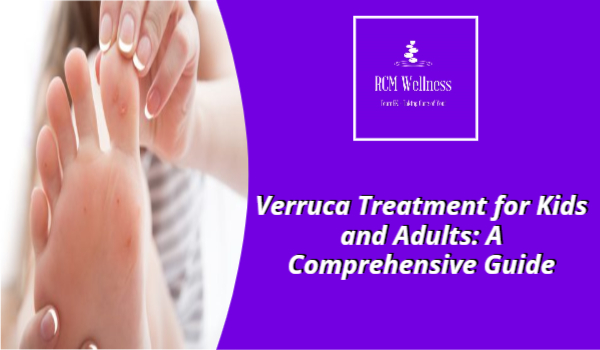
Verruca is a common skin condition caused by the Human Papillomavirus (HPV). It appears as small, rough, and often painless growths on the skin, most frequently on the hands and feet. While generally harmless, verruca can be unsightly and sometimes spread.
Understanding Verruca
Verruca is highly contagious and can spread easily through direct contact with an infected person or contaminated surfaces. Children are particularly susceptible to verruca due to frequent contact with other children in schools or play areas.
Verruca Treatment Options
Several verruca treatment options are available for, ranging from over-the-counter remedies to medical procedures. The most suitable treatment will depend on the size, location, and number of verruca, as well as the patient’s age and overall health.
Over-the-counter Treatments
Over-the-counter treatments, such as salicylic acid plasters or creams, are widely available and can be effective in treating small verruca. These treatments work by gradually removing the top layers of the verruca, eventually destroying it.
Freezing (Cryotherapy)
Cryotherapy involves freezing the verruca with liquid nitrogen. This causes the verruca to blister and eventually fall off. Cryotherapy is a common and effective treatment for verruca, but it can be painful and may require multiple treatments.
Surgical Removal
Surgical removal may be considered for larger or more stubborn verruca. This procedure is typically performed by a doctor in a clinic setting and involves removing the verruca with a scalpel or other surgical tool.
Other Treatments
Other treatment options for verruca include:
- Cantharidin: A blistering agent that can be applied to the verruca.
- Immunotherapy: Involves injecting a substance near the verruca to stimulate the immune system to fight the virus.
- Laser therapy: Uses a laser to destroy the verruca.
Preventing the Spread of Verruca
Good hygiene practices are crucial in preventing the spread of verruca. This includes:
- Washing hands frequently with soap and water.
- Avoiding sharing towels, shoes, and other personal items.
- Covering verruca with a plaster or bandage.
- Disinfecting surfaces that may have come into contact with verruca.
When to Consult a Doctor
It is advisable to consult a doctor if:
- Verruca is causing pain or discomfort.
- Verruca is spreading rapidly.
- Verruca is located on the face or genitals.
- Over-the-counter treatments are ineffective.
Conclusion
Verruca is a common but often treatable condition. By understanding the different treatment options and practising good hygiene, you can effectively manage verruca and prevent its spread.
If you are concerned about verruca, please consult with a healthcare professional at RCM Wellness for personalised advice and treatment.
Please leave a comment below if you have any questions or would like to share your experience with verruca.





Leave a Reply